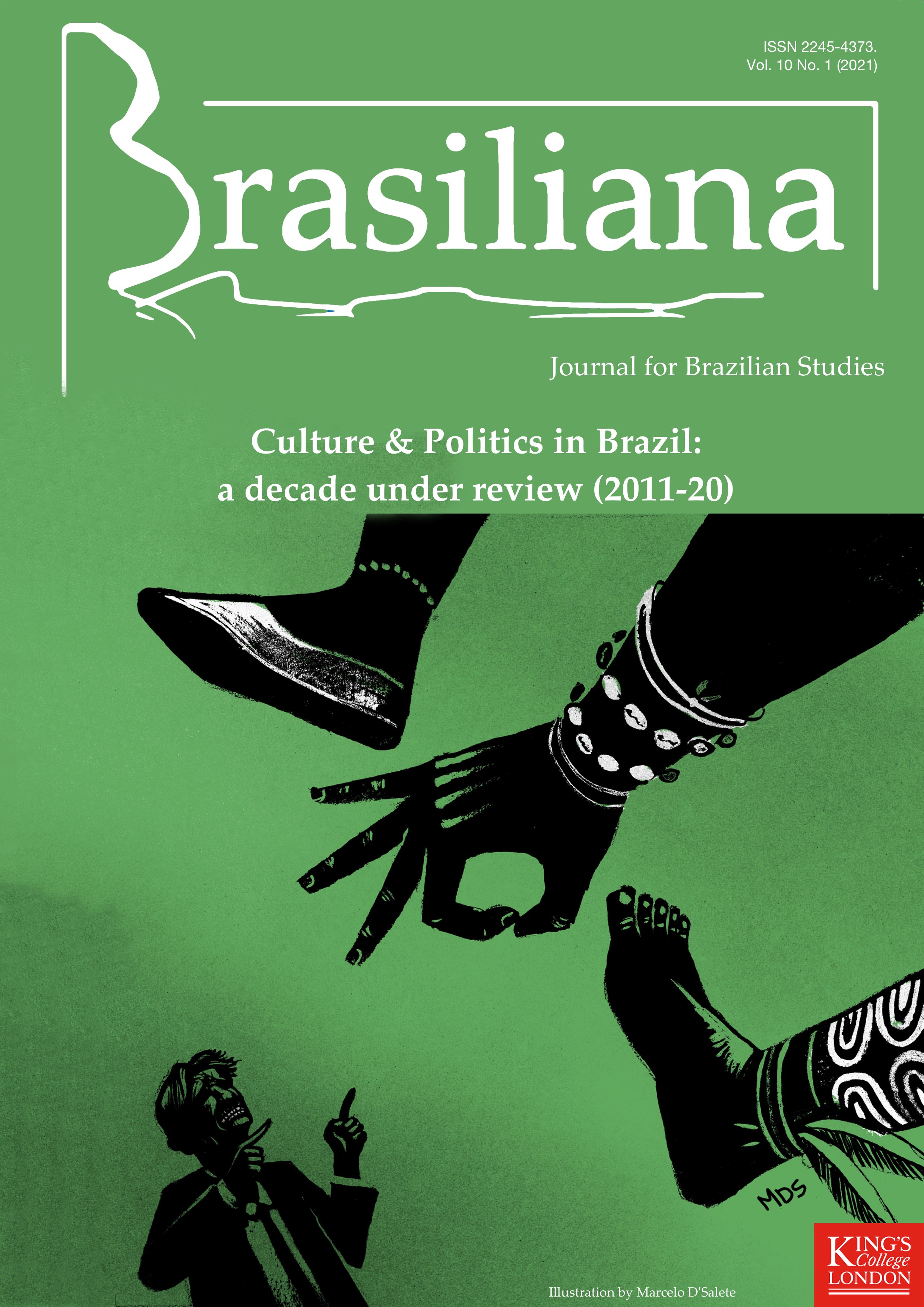Digital participation of left-wing activists in Brazil: cultural events as a cement to mobilization and networked protest
Conteúdo do artigo principal
Resumo
This research explores how Brazilian activist groups participate in Facebook to coordinate their social struggles, based on a lexical analysis of publications on 529 pages, published between 2013 and 2017. These groups set up two main repertoires of action by mobilizing Facebook as an arena for challenging political action and a tool for coordinating their mobilizations.
This research shows more specifically that artistic expression and the agenda of cultural events are central to these digital action repositories. Publications and conversations related to culture punctuate the ordinary exchange of information between activists, especially during the lulls of social struggles. They structure activist networks on a medium-term basis and contribute to the coordination of social movements by creating the conditions for occasional gatherings, transversal to different types of activism and to various social struggles.
Detalhes do artigo
![]()
Articles published in Brasiliana are licensed under a Creative Commons Attribution-NonCommercial-NoDerivs 3.0 Unported License.
When publishing open access, the author signs an author publishing agreement in which they retain copyright and give Brasiliana the right to publish the article. Our Open Access publications are distributed under the terms of the Creative Commons Attribution 4.0 International License, which permits unrestricted use, distribution, and reproduction in any medium, provided the original work is properly cited.
Referências
Cardoso, G., Lapa, T., Di Fatima, B. (2016), People are the message? Social mobilization and social media in Brazil. International Journal of Communication, 10, 22.
Castells, M. (2012), Networks of outrage and hope: Social movements in the Internet Age, Cambridge: Polity Press.
Chadwick, A. (2007), Digital network repertoires and organizational hybridity, Political Communication, 24(3), 283-301.
Dahlgren, P. (2009), Media and political engagement: Citizens, communication, and democracy, Cambridge University Press.
Dahlgren, P, (2013), The political web: Media, participation and alternative democracy. Springer.
Earl J. & Kimport K. (2011), Digitally enabled social change: Activism in the Internet age, Cambridge: MIT Press.
Eltantawy, N., Wiest, J. B. (2011), The Arab spring| Social media in the Egyptian revolution: reconsidering resource mobilization theory, International journal of communication, 5, 18.
Koc-Michalska, K, Lilleker, D.G., Vedel, T. (2016), Civic political engagement and social change in the new digital age, New Media Society, 18(9) p. 1807-1816.
Lopes J. S. L., Heredia B. M. A. D., Movimentos Sociais e Esfera Pública: O Mundo da Participação, Rio de Janeiro : Colégio Brasileiro de Altos Estudos, Forum Brasileiro de Ciência e Cultura, Secretaria Geral da Presidência da República, 2014.
Meraz, S., Papacharissi, Z. (2013), Networked gatekeeping and networked framing on# Egypt, The international journal of press/politics, 18(2), 138-166.
Norris, P. (2002), Democratic phoenix: Reinventing political activism, Cambridge University Press.
Papacharissi, Z.A. (2010), A Private Sphere: Democracy in a digital age, Cambridge: Polity Press.
Pariser, E. (2011), The Filter Bubble: What the Internet is Hiding from You, London: Penguin UK.
Peralva A., Figeac J. & Paton N. (2017). Resta algo de 2013? Liinc, revista do Laboratório Interdisciplinar em Informaçao e Conhecimento, 132, p. 381- 400.
Rieder, B. (2013), Studying Facebook via data extraction: the Netvizz application, In Proceedings of the 5th annual ACM web science conference, p. 346-355, ACM.
Shane, P. M. (2004), Democracy online: the prospects for political renewal through the Internet. Routledge.
Skoric, M. M., Zhu, Q., Goh, D., Pang, N. (2016), Social media and citizen engagement: A meta-analytic review, New Media & Society, 18(9), 1817–1839.
Smyrnaios, N., Ratinaud, P. (2017), The Charlie Hebdo attacks on Twitter: A comparative analysis of a political controversy in English and French. Social Media+ Society, 3(1), 2056305117693647.
Solano, E., Manso, B. P., Novaes, W., Mascarados. A Verdadeira História dos Adeptos da Tática Black Bloc, São Paulo: Geração Editorial, 2014.
Sunstein, C. R. (2007), Republic.com 2.0. Princeton University Press, Princeton, NJ, USA.
Tilly, C. (1993), Contentious repertoires in Great Britain, 1758–1834. Social Science History, 17(2), 253-280.
Telles M., « Corrupção, Legitimidade Democrática e Protestos: O Boom da Direita na Política Nacional? », Interesse Nacional, ano 8, n°30, 2017.
Theocharis, Y., Lowe, W., Van Deth, J. W., García-Albacete G. (2015), Using Twitter to mobilize protest action: online mobilization patterns and action repertoires in the Occupy Wall Street, Indignados, and Aganaktismenoi movements, Information, Communication Society, 18(2), 202-220.
Tufekci, Z. (2017), Twitter and tear gas: The power and fragility of networked protest, Yale University Press.

